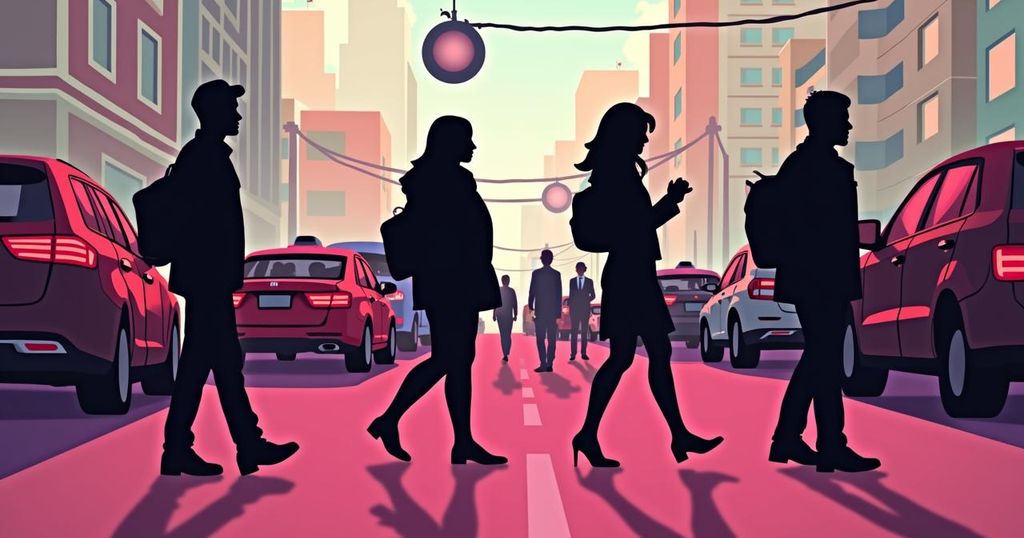Lyft announces new driver initiatives amid ongoing legal challenges from California, where the Supreme Court rejects Uber and Lyft’s appeal against labor lawsuits alleging misclassification of drivers. New measures include improved pay for drivers and enhanced support tools.
In the evolving landscape of the ride-hailing industry, Lyft has recently announced significant measures aimed at enhancing driver compensation and overall experience. These changes arrive in a challenging legal environment, particularly following the U.S. Supreme Court’s decision to decline an appeal from both Lyft and Uber concerning labor lawsuits in California. Despite the companies’ assertions that drivers benefit from independent contractor status, these allegations highlight critical concerns regarding the misclassification of workers and their right to essential labor protections. Lyft’s new initiatives include increased earnings for drivers who undertake rides that exceed the anticipated time and those who make extra efforts to fulfill ride requests. Furthermore, Lyft is introducing features such as an earnings dashboard that provides drivers with improved transparency regarding their income and a “preferred drivers” system designed to prioritize ride requests for specific drivers based on performance metrics. In addition, a specialized matching feature is set to connect electric vehicle operators with rides compliant with their operational range. Jeremy Bird, the Executive Vice President of driver experience at Lyft, emphasized the company’s growth, stating, “We have about 1.3 million or so drivers over the last year that have been on the platform. We’ve seen pretty tremendous growth year over year … Our goal is to continue to grow that.” Despite these forward-looking initiatives, both Uber and Lyft face serious legal challenges stemming from lawsuits initiated by California officials, which aim to recover alleged unpaid wages and benefits for drivers misclassified as independent contractors. A key legal ruling facilitated this pursuit, stating that the arbitration agreements signed by drivers do not impede state officials from enforcing labor laws. Consequently, California can pursue claims for unpaid wages, an action that questions the business models of these ride-hailing companies and could have far-reaching implications across the gig economy. This legal scrutiny is compounded by the fact that California voters approved Proposition 22 in November 2020, which allowed ride-hailing companies to maintain their independent contractor classification for drivers. However, it is crucial to note that the current legal actions were initiated prior to this measure’s enactment. Ultimately, the Supreme Court’s refusal to hear Lyft and Uber’s appeal permits ongoing legal challenges to proceed, potentially inciting similar actions in other states and intensifying the existing debates regarding worker classifications in the gig economy.
The ride-hailing industry is undergoing transformative changes, particularly concerning the classification and treatment of drivers as independent contractors. This classification has led to significant legal disputes, especially in California, where labor officials have initiated lawsuits against major ride-hailing companies like Uber and Lyft. These lawsuits claim that drivers have been misclassified and deprived of essential benefits and protections guaranteed to employees. As the landscape evolves, companies are compelled to address driver compensation and satisfaction swiftly, especially in light of growing legal pressures and competitive business environments. Lyft’s recent initiatives to improve driver pay and experience reflect this urgency, demonstrating a shift towards better working conditions while simultaneously navigating legal complexities.
In summary, Lyft’s proactive steps to enhance driver earnings and introduce supportive tools reflect an essential evolution amidst ongoing and significant legal challenges in the ride-hailing sector. The California labor lawsuits underscore critical issues regarding worker classification, which may reshape the gig economy substantially. The refusal of the Supreme Court to entertain the companies’ appeal reinforces the possibility of extensive legal repercussions, further entertaining the dialogue about labor rights and business practices in the gig economy.
Original Source: moneycheck.com

Leave a Reply